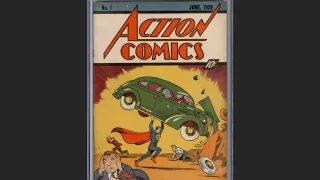February 11, 2017
New Film Centers Around African-American Family, HIV/AIDS and the LGBTQ Community
Lainey Millen READ TIME: 5 MIN.
Filmmaker Anthony Williams was all smiles at his North Carolina red carpet premiere of his independent film project "Thicker Than Blood" on Feb. 1 at The Cary Theatre, 122 E. Chatham St. In fact, the first screening was sold out in the two-screenings event.
Produced in North Carolina by Second Glance Productions and the North Carolina Health Equity Group (NCHEG), the film tells the story of Jordan, a gay man raised in a homophobic household, who returns home for the first time in three years to celebrate his older brother's promotion to partnership in a prestigious law firm. Unfortunately, during the festivities "secrets are revealed, masks are uncovered and some things are said that just can't be taken back," Williams shared. The family is tasked with trying to figure out how to pick up the pieces and put them back together before losing each other forever.
Williams shared that the premiere "went above and beyond our expectations. The audience laughed in all the right places, felt all the emotions and could relate or sympathize with what was happening on the screen. As a filmmaker, sitting back and watching the audience and feeling their energy and love was more than I could ever ask for."
Audience members felt the film was compelling, relatable and made them laugh, cry and connect with the characters, from comments made to Williams afterward.
"Thicker Than Blood" stars Atlanta, Ga. natives Kevin Boles, Jr. as Jordan and Tony Bravado as brother Richard, Charlottean Thom McKinney as Richard, Sr. (the father), Christina Smith who hails from Spartanburg, S.C. as Marilyn (the mother), Raleigh, N.C. natives Destiny Diamond McNeill as Selena (Richard's girlfriend) and Florencio Martinez as Cameron (Jordan's boyfriend).
"Highlighting the stigma and challenges of living with HIV, as well as the often hidden intolerance of LGBTQ members in the Black/African-American community, 'Thicker Than Blood' raises thought in the mind and strikes an emotional chord in the heart," he added.
At the end of the film, a discussion on stigma and discrimination and how they affect communities took place.
Of the many objectives of the piece are to spread awareness and to eliminate stigma associated with HIV/AIDS.
"Although I am HIV-negative, I am an African-American man and part of the LGBT community. I personally understand some of the challenges we have to face in the black community, and we have a category of our own challenges to deal with. Those living in the LGBT community or living with HIV/AIDS should not have to worry about piling on the worries of dealing with discrimination and stigma. Because someone who is gay, black, and HIV-positive, it's almost like 'three strikes, you're out' in the black community," Williams said.
He added, "Witnessing friends dealing with the challenges of disclosures [to family and prospective loved ones], the common misconceptions about HIV, and witnessing how religion plays a huge factor in how the black community treats each other as humans, I felt I could provide a different view into these issues so that those who aren't facing them can better understand those who are. These are my people, my community, and I'm obligated to help better it the only way I know how - through one avenue where we seem to connect the most - entertainment and media."
Williams spent time volunteering with NCHEG (formerly known as Care and Prevention in the United States) demonstration project. It was a three-year, cross-agency collaborative effort with the Centers for Disease Control and Prevention which sought to reduce HIV and AIDS-related morbidity and mortality among racial and ethnic minorities living in the U.S. When the endeavor came to an end, he wanted to create a project that highlighted the challenges of living with HIV/AIDS as a person of color. "Luckily, I was in a place of experts who were able to offer their knowledge and expertise on the matter. So, throughout the development and production process, I was able to utilize the knowledge I'd gained, as well as the first-hand experiences of those who were involved in CAPUS [HCHEG]," he shared.
He also added, "I felt making a movie was a unique platform for sharing this kind of information because even though we as humans don't see eye-to-eye on everything, we at least share the common desire to escape reality and experience a different world. Growing up, all that's thrown at us in school are statistics, so after a while, we tend to tune that out. That's no different with facts about public health. When it comes to important issues such as HIV, it's important to find different, effective ways of effectively reaching people. So, combining the entertainment aspect of film and public information aspect, I felt it was the perfect way to go."
Williams stated that HIV is not discussed enough due to society's fears of the unknown or uncertainty. "Those who aren't a part of the HIV or LGBTQ communities are only exposed to the negative or fear side, as opposed to taking the time to fully educate themselves on the issues at hand." He hopes the film will be a conduit through which individuals can see the world differently, or perhaps similar, from their own in an accurate and factual portrayal.
"As a storyteller, one who aims to tell stories that can possibly help change the world, I've always felt it was important to never sugar-coat the truth. I never beat around the bush. And I always try to be bold and passionate about the stories I tell. I aim to tell stories that others may be afraid to tell, in a way that keeps the audience entertained, but more importantly, in a way that keeps them thinking. Because whether they end up loving or hating what's on the screen when it's all said and done, at least it gets them talking," he concluded.
For those who want a sneak peak of "Thicker Than Blood," visit youtu.be/5SebjzCq-OE.
Screenings were held across the state from Feb. 6-8 in Greensboro, N.C., Winston-Salem, N.C., Charlotte, N.C., Durham, N.C., Fayetteville, N.C., and Raleigh, N.C., as a way to celebrate National Black HIV Awareness Day. Another free, open-to-the-public screening is slated in Greenville, N.C. for Feb. 19, 3:15 p.m., at East Carolina Hendrix Theater, Mendenhall Student Center, E. 5th St.
A few cast members were in attendance at certain screenings to participate in a Q&A session and answer any questions from the audience. Free HIV testing was also available on site at selected screening locations, as well.
For more information, visit facebook.com/thickerthanbloodmovie and facebook.com/events/1693537140936505.
 Copyright QNotes. For more articles from QNotes visit
Copyright QNotes. For more articles from QNotes visit 





